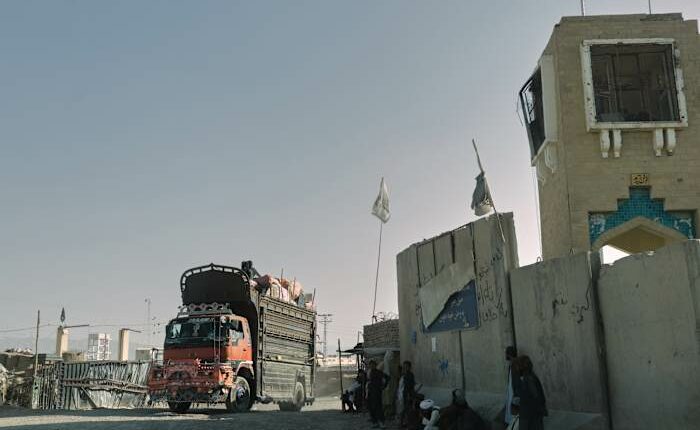Share this @internewscast.com

ANKARA – Efforts to broker peace between Pakistan and Afghanistan have reached a standstill in Istanbul after three days of negotiations. State media from both nations reported on Tuesday, pointing fingers at each other for the stalled discussions, while Turkey continues its attempts to break the deadlock.
The discussions in Istanbul are part of a larger diplomatic initiative aimed at alleviating months of rising tensions between Islamabad and Kabul. The disputes primarily revolve around cross-border attacks and the presence of militant hideouts, issues that have troubled relations since the Taliban regained control in Afghanistan four years ago.
Delegations from both countries remain in Turkey. However, it remains uncertain whether talks will extend into a fourth day.
Early Tuesday, Pakistan Television reported that Turkish officials, alongside several other nations, are striving to uphold a ceasefire initially agreed upon on October 19 in Doha following the first negotiation round. This ceasefire came after deadly cross-border skirmishes resulted in numerous casualties, including soldiers, militants, and civilians from both sides.
According to three Pakistani security officials, who spoke to The Associated Press under the condition of anonymity due to lack of authorization to speak publicly, the deadlock in Istanbul stems from Afghanistan’s hesitation to meet Pakistan’s “logical and legitimate” demands. These demands include assurances that Afghan territory will not be used for activities against Pakistan.
The host nation, Turkey, is actively working to resolve the impasse, hopeful that the final negotiation round can resume promptly.
According to the Pakistani officials, the Taliban delegation was “not fully willing” to accept Pakistan’s proposals and continued to seek guidance from Kabul before making decisions.
There was no immediate response from Kabul about the Pakistani claims, repeated by Pakistan Television on Tuesday.
Afghanistan-controlled media RTA made similar accusations against the Pakistani side, saying Kabul “made every effort to hold constructive talks,” but that the “Pakistani side does not seem to have this intention.”
As the latest round of the talks was underway in Turkey, U.S. President Donald Trump on Sunday pledged to help resolve the crisis between the two neighbors very quickly.
The recent fighting prompted Qatar to host the initial round of talks, which produced a ceasefire that both sides say is still holding despite the stalemate in Istanbul.
There was no official statement from either side about the status of the talks.
Islamabad-based security analyst Syed Mohammad Ali on Tuesday said Afghanistan’s strategy at the talks was to slow the diplomatic process and shift focus to other bilateral issues. He noted Afghanistan’s “reluctance to give clear, unambiguous and internationally verifiable commitment to act against Afghanistan-based Pakistani Taliban and other militants.”
Pakistan has seen a surge in militant attacks in recent years, mostly blamed on the Pakistani Taliban, or Tehrik-e-Taliban Pakistan, a group closely allied to the Taliban in Afghanistan. Islamabad says the group is being sheltered in Afghanistan since the Taliban seized power in 2021.
Authorities in Pakistan have said the country’s military earlier this month targeted hideouts of the TTP in Afghanistan. It triggered deadly clashes between the two countries until Qatar brokered the ceasefire.
All border crossings between the two sides have remained shut for more than two weeks, however, with trucks carrying goods stranded and waiting for the reopening of key trade routes.
___
Ahmed reported from Islamabad.
Copyright 2025 The Associated Press. All rights reserved. This material may not be published, broadcast, rewritten or redistributed without permission.










